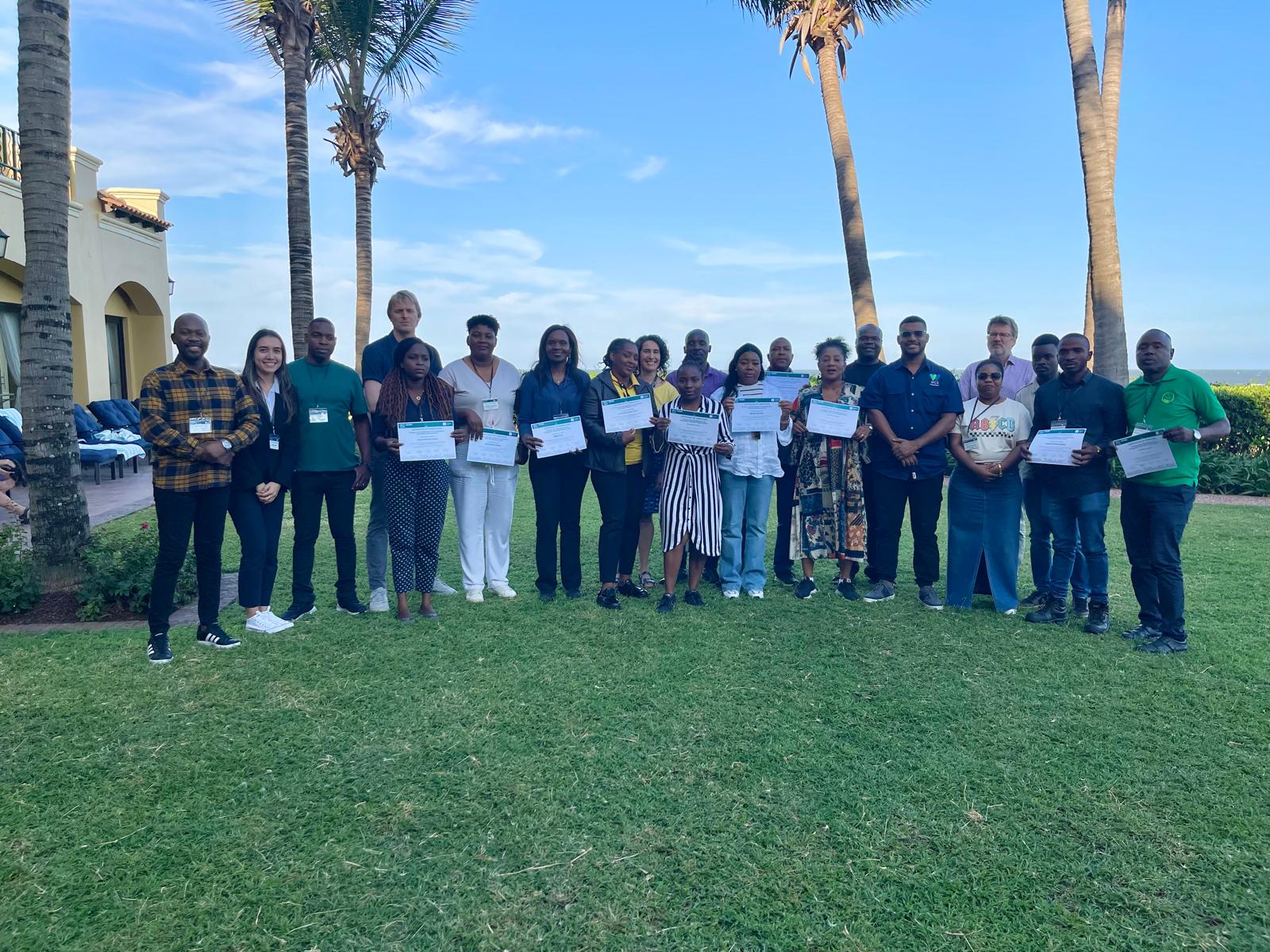
The Norwegian Environment Agency (NEA), in collaboration with the United Nations Environment Programme World Conservation Monitoring Center (UNEP-WCMC) and with the support of the Wildlife Conservation Society (WCS), held the third training course on Spatial Data Management and Geographic Information Systems (GIS). The training took place between October 22 and 24 in Maputo City, with the aim of training technicians from the Ministry of Agriculture, Environment, and Fisheries (MAAP), namely, National Institute of the Sea (INAMAR), National Directorate of Land and Territorial Development (DNDT), Oceanographic Institute of Mozambique (InOM), National Centre for Cartography and Remote Sensing (CENACARTA), National Directorate for Forests and Wildlife (DNFFB), National Directorate for the Environment and Climate Change (DINAMC), National Agency for Environmental Quality (AQUA), National Administration of Conservation Areas (ANAC), reinforcing essential skills for the monitoring and sustainable management of natural resources, and raising awareness of the importance of spatial data in the decision-making process.
With the participation of 21 professionals, the initiative included theoretical presentations and interactive practical exercises, delivered by speakers that also included AQUA promoting sharing and dynamic learning. Among the topics covered were working with raster images to determine elevation, examples of data collection using GIS tools, and using the iNaturalist citizen science platform from citizen science iNaturalist.
The session with iNaturalist coincided with the global BioBlitz in the southern hemisphere on October 24, encouraging participants to contribute to real-time biodiversity records.
This training is part of a series of ongoing training sessions that began in July 2024 and will continue until 2026, with the aim of strengthening Mozambique's institutional capacities in spatial data management for environmental conservation, decision-making, and sustainable development. The training is carried out within the scope of the Oceans for Development program, implemented by NEA in collaboration with UNEP-WCMC and funded by NORAD.